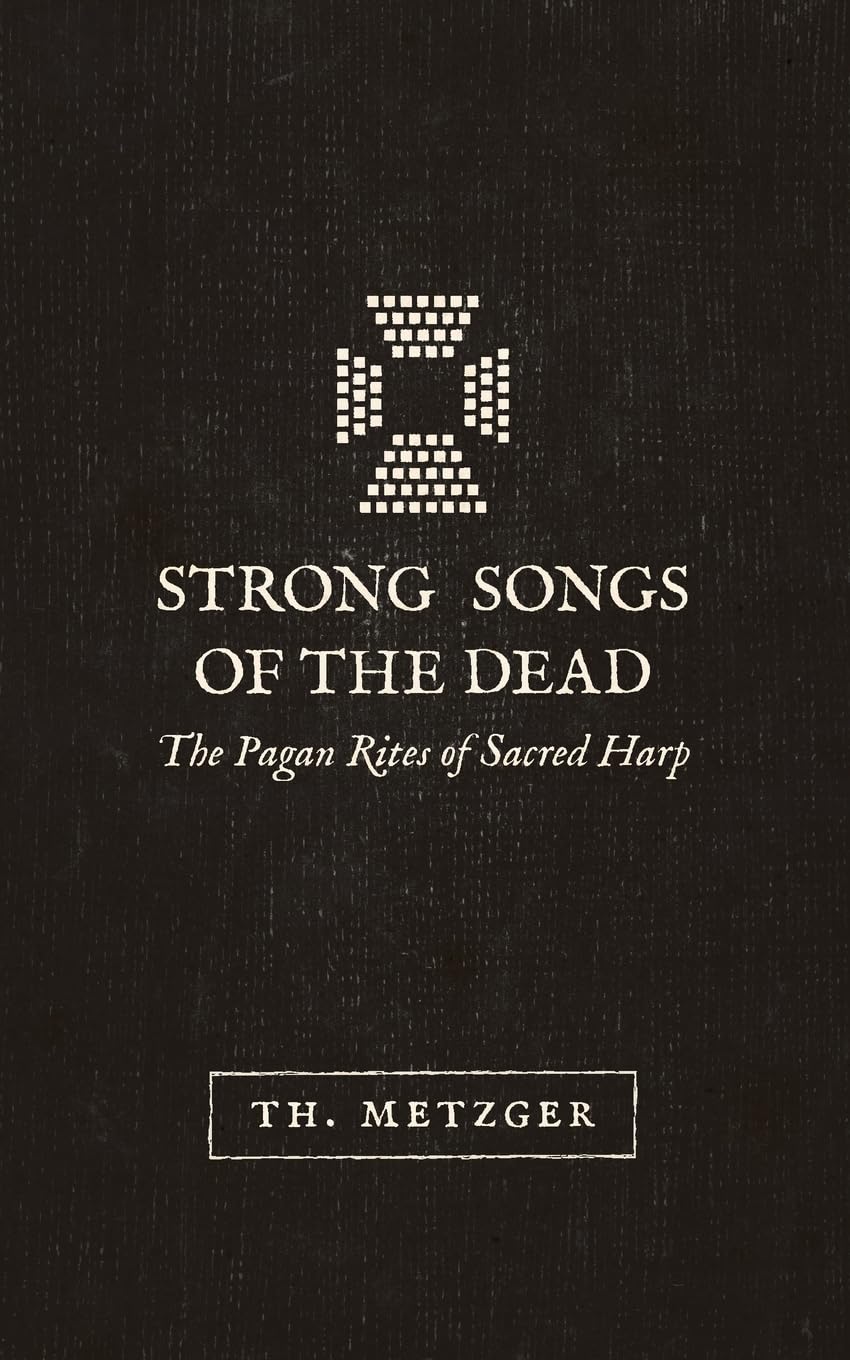
Strong Songs of the Dead
Metzger considers the music and its sociology from a number of less-expected points of view. Firstly, as an intoxication. Sacred Harp sings are a loud orgy of rough-edged euphony that goes on for five hours at a stretch. Only the vaguest notion of the sound may be gained by listening to recordings. As with African drumming, the sound is complex, encompassing, and beyond the power of a microphone to pick up. Metzger is at some pains to view this as pagan, even Dionysian—with some borrowing from Nietzsche’s “Birth of Tragedy.”
Metzger searched out the most authentic living instances of the original Sacred Harp sound. Though it originated in New England, it has best kept its primordial form in the south, among persons whose Christianity tends towards the fundamentalist and charismatic. Metzger’s account of his deep south pilgrimages are the most fascinating part of the book; he has the knack of respectfully and sympathetically describing persons for whose larger views he can have little respect or sympathy. His encounters with these persons are rich in humor, and untainted by irony. Metzger has recently written a number of autobiographical books, Big Noise on the Astral Plane, Hakim Bey Real and Unreal, and Undercover Mormon, in which the fun comes from his not dissimilar encounters with eccentric and sometimes self-destructive seekers. —Mildred Faintly. Read her full review of this book here.
read an excerpt from this book here